#saint-jean-baptiste
Text

Mural in Calvi, Corsica, France
#art#mural#Corsica#France#cathédrale Saint-Jean-Baptiste#Saint-Jean-Baptiste#cathedral#calvi#my posts
7 notes
·
View notes
Photo



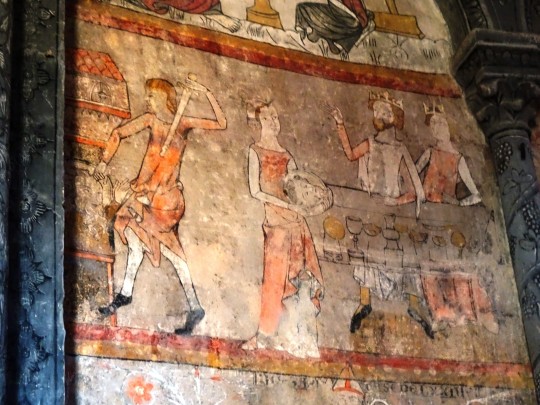
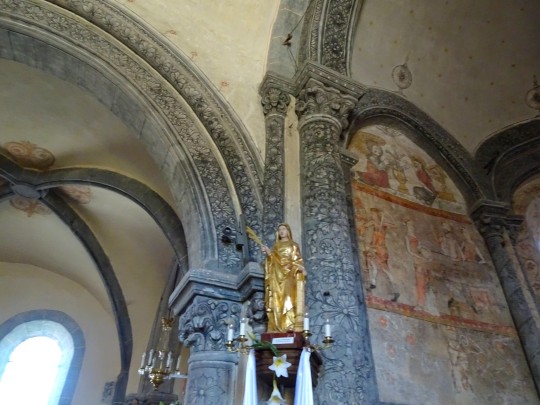
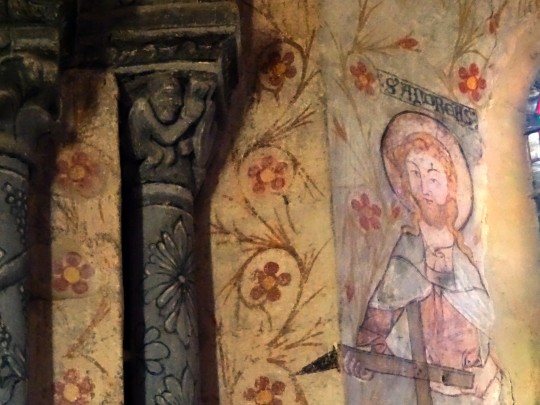
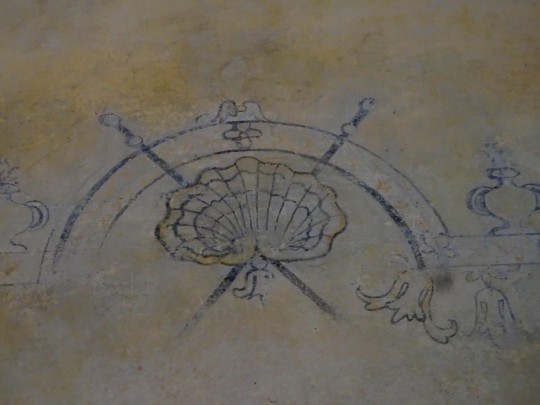
J’ai passé 4 jours en Auvergne, à la limite entre Haute-Loire et Puy-de-Dôme, histoire de replonger un peu dans certaines de mes racines,
L’église romane Saint-Jean-Baptiste d’Azérat. Des murs peints extraordinaires. Entre autres, l’Annonciation, Salomé et la tête de Saint Jean-Baptiste, et une coquille Saint-Jacques avec bâtons de pélerins...
#auvergne#haute-loire#azérat#art roman#roman auvergnat#fresque#couleur#coquille saint-jacques#compostelle#annociation#ange#décollation#saint-jean-baptiste#salomé#saint jean-baptiste
11 notes
·
View notes
Text
Le vingtième Festival carillon revient bientôt à Perpignan !
Le vingtième Festival carillon revient bientôt à Perpignan !
Depuis 2003, le festival international de carillon de Perpignan a réussi à s’intégrer dans l’offre culturelle estivale proposée. Faire découvrir le plus ancien des grands carillons français, mettre en valeur le carillon en tant qu’instrument de musique à part entière et inviter des carillonneurs français, européens ou étrangers, afin de programmer des concerts de qualité, demeurent les trois axes…

View On WordPress
#2022#carillon#cathédrale#festival#Gabriel Fauré#Le Journal Catalan#Maurice Ravel#perpignan#Pyrénées-Orientales#Robert Schumann#Saint-Jean-Baptiste#Sergueï Prokofiev
0 notes
Audio
Oui un beau jour tu vas m'accompagner
Aupres de toi toujours je resterai
Y'en a qui pense du mal de toi
Mais moi je m'en fous
Alors accompagnes moi
Moi je m'en fous
Alors accompagnes moi
Listening to two of my favorite Quebecers, Kate and Anna McGarrigle, for la Saint-Jean-Baptiste! I can never pick a favorite song of them, though; there are too many I love. Tu Vas M’Accompagner is just one of them! Happy Friday!
#Tu Vas M’Accompagner#Kate and Anna McGarrigle#Kate & Anna McGarrigle#Kate McGarrigle#Anna McGarrigle#McGarrigle Sisters#Favorite Quebecers#Favorite Canadians#Canadian Singers#Canadian Songwriters#Canadian Song#French-Canadian Song#Canadian Music#Canadian Musicians#Saint-Jean#Saint-Jean-Baptiste#Quebec#QC#Canada#Canada Chronicles
1 note
·
View note
Text

Jean-Baptiste-Camille Corot (French, 1796-1875), St. Sebastian, 1850-51
115 notes
·
View notes
Text

La Cathédrale et la Fountaine Saint-Jean-Baptiste, Lyon, Auvergne-Rhône-Alpes, FRANCE
#cathedrale#cathedral#catedral#fountaine#fountain#fuente#saint jean#saint john#san juan#baptiste#bautista#lyon#auvergne rhône alpes#france#francia#europe#europa
107 notes
·
View notes
Text
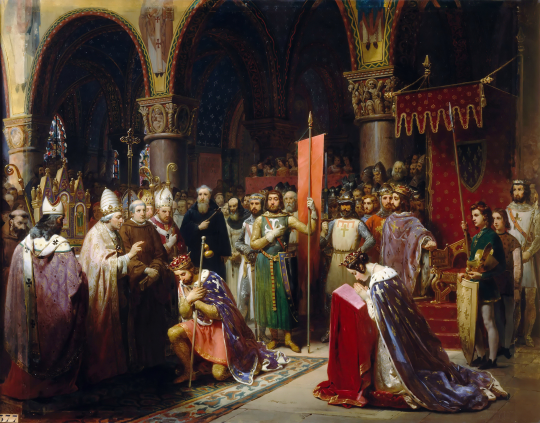
Jean-Baptiste Mauzaisse (French, 1784-1844)
Louis VII Takes the Standard at Saint-Denis, 1840
Chateau de Versailles
#Jean-Baptiste Mauzaisse#french art#french#france#louis vii takes the standard at saint-denis#1800s#art#fine art#european art#classical art#europe#european#oil painting#fine arts#europa#mediterranean#queen#king#french royals#royals#royal#christentum#christian#western civilization
103 notes
·
View notes
Text
so for the RP blog shenanigans I was looking up a guy who @josefavomjaaga told me actually used to be Ney's ADC before tranferring to Soult's team, who has a really long name but let's call him Bory de Saint-Vincent because that's his last name
and this dude is fuckin wild, look at this description of him
Bory de Saint-Vincent's almost too colorful life story has sometimes overshadowed his reputation as one of the most thoughtful and productive naturalists of the early nineteenth century. A free spending extrovert who also dabbled in literary ventures, his career was complicated by involvement in a near-mutiny at sea, various political intrigues, and financial debts to the extent that he spent years at a time avoiding the authorities, or actually being incarcerated. Throughout it all, however, he managed to keep up a career as a natural history collector.
he's more known for being a naturalist than a military guy, but he's also just straight up nuts
even just looking at his wikipedia page

I dunno about you, but I feel like "precocious naturalist" should mean "discovered twenty new kinds of plants as a kid", not helping save a guy from prison (I initially read it as jailbreaking but it could have been more legal, not sure, but also apparently the ship the entomologist was meant to be on also sank so lil kid Bory saved this guy's life technically???)


Dude hopped on a expedition to Australia, got sick of the captain and decided to just go at it alone for a few years in the middle of the ocean

now my crack theory is that ney got sick of hearing about plants all the time and shoved him towards soult
and he had so many scientist friends, when he was exiled after waterloo, he was invited to stay in prussia by the king thanks to a scientist friend, got kicked out after 18 months, "offered a commission as General in Bolívar's new Republic of Colombia" by another scientist friend, declined that, and escaped to holland to meet the Sieyes guy who kinda was supposed to be a consul alongside this other dude called Bonaparte many years ago
dude got placed in debtor's prison for too many debts and these two fuckin notes attached to that

His scientist friends tried to cheer him up by parading a giraffe next to the debtor's prison so that he can climb onto the rooftop to look at it with a telescope
but he didnt want to leave prison because he could have his friends visit and had good food and good sleep, but his son in law against his wishes paid his debts so that he could actually go to the damn wedding

dude did have some weird racist ideas about human ethnicity but he was also anti-slavery and denounced the heritage peerage system while in a political position and ended up getting kicked out because of that so that's cool
this guy is like a french Stephen Maturin sort of, except he's real
and he is also contributing to the fact that none of soult's ADCs are normal people
i wish i'd learned about him earlier so i could submit him to the napoleonic sexyman tournament
#napoleonic era#napoleonic wars#jean-baptiste bory de saint-vincent#napoleon's marshals' adcs#napoleon's marshals#sort of#im characterising him as an exuberant outgoing extrovert who fucking loves plants and will not shut up about plants
22 notes
·
View notes
Text
Murat and Bessières at school
Still looking for something for @flowwochair, I came across this very brief remark in the memoirs of general Jean Sarrazin (more about him below):
When I was seven, my father took me to the college in Cahors, the capital of the Lot department. My father chose this college in preference to the one in Agen, on the advice of the Comte de Fumel, whose tenant he was. [...] I was raised with Murat, Bessières and Andral, with whom I was friends. Bessières was well-behaved, a little Cato. Murat was a scatterbrain, boisterous and concerned only with his own pleasures. He was a true Paris brat (gamin de Paris).
Now, I assume this author is a highly suspicious source. Not only because he, obviously, is yet another Gascon, but mostly because he, after having served in the Revolutionary and Imperial army, defected to the British in 1810, and supplied them with plenty of information on Napoleon’s plans and the most prominent leaders of his army. As a matter of fact, in 1811 he had a book published with descriptions of several prominent figures in France, called "The Philosopher", the first chapter of which is dedicated to Marshal Soult, who was probably the most interesting to the British due to him being their main opponent in Spain, and who in this book receives much more praise than is due to him. While much of it may be plain wrong or at least cannot be verified, I feel like it’s an interesting insight into what people in the army at the time thought about these folks.
Among other things, Sarrazin gives a long description of the battle of Fleurus, with some interesting twists. Mostly he claims that Lefebvre owed his reputation as a great general only to Soult, who at the time was his chief-of-staff, and even has general Marceau exclaim that Soult had won the battle of Fleurus for them. This is completely opposite to Soult’s own memoirs, where Soult has nothing but praise for Lefebvre’s actions during the battle of Fleurus, and barely mentions his own. However, there seems to be some truth to Soult coming to the aid of one rather desperate general Marceau, as Soult mentions this, too, though in a very different context.
The demand to detach some troops at a very inopportune moment is made in Soult’s memoirs as well – but not by Marceau, but by Saint-Just. And it’s not Lefebvre and Soult who refuse, but Jourdan (whom Soult praises a lot for having had the courage to stand up to what he calls "Saint-Just's presumptuous ignorance"). I am not sure in how far these memoirs are influenced by Soult’s own long life and his own political situation, but he clearly despises Saint-Just. According to his memoirs, the whole officers’ corps was shaking with fear while the politicians were with them, literally scared to death. In front of Charleroi, one artillery capitaine allegedly was executed for having failed to meet the schedule Saint-Just had set for him.
Again, I have no clue what this is based on. But I thought it worth mentioning, maybe somebody from the Frev community can shed some light onto this incident.
(Personally, I feel like Soult may be projecting here a little of "Joseph's presumptuous ignorance" onto another episode of his life 😋)
#napoleon's marshals#jean de dieu soult#battle of fleurus#1794#saint just#francois joseph lefebvre#jean baptiste jourdan#frev
36 notes
·
View notes
Text
youtube
The Alchemists, a short film by Adrien Dang, Loan Estevez, Mathieu Giazzi, Angèle Legras, Julien Motteau
#short#film#short film#animation#gobelins#short movie#adrien dang#loan estevez#mathieu giazzi#angèle legras#julien motteau#youna noiret#julien vermeulen#david couturier#serge thiriet#gobelins paris#jean baptiste saint pol#Youtube
30 notes
·
View notes
Photo

Rupert Everett photographed by Jean Baptiste Mondino for Yves Saint Laurent Opium Homme parfum, 1996.
#rupert everett#jean baptiste mondino#yves saint laurent#ysl#opium homme#1996#fashion campaign#fashion ad#fashion photography#photo shoot#fashion#photography#1990s
41 notes
·
View notes
Text
Ruthless Representatives, Unjust Executions (3/3): Jourdan on the Death List
This is an addendum to the previous two parts of the series, which is in response to @josefavomjaaga's original post about Soult's account on Saint-Just condemning execution an artillery captain. In that post, Josefa also mentions that Soult talks about a proscription list Saint-Just had drawn up in case the French suffered defeat at Fleurus, including the commander-in-chief Jourdan and Soult himself.
I am suspicious of Soult's claim that Saint-Just had a death list he would enact in the event that Fleurus went badly, much less one with Soult's name on it. I doubt Saint-Just even acknowledged that Soult was a political threat, though the only evidence I have of this is the dearth of Soult in vol 2 of. the Œuvres completes of Saint-Just. Soult's name does not show up once, not even for promotion or praise; only that of his commander Lefebvre does. Soult's anecdote, however, led me to look into Saint-Just's correspondence with Jourdan, the other named member of this proscription list, and examine the veracity of Soult's statement regarding Jourdan. All translation errors are my own.
I think official correspondence, where one is required to be formal, rarely proves the emity between two parties unless they were spectacular rivals. That said, one would think the cordial tone Saint-Just uses when writing to Jourdan, then commanding the Army of the Moselle, would make Jourdan's inclusion in the proscription list dubious. Here is a letter of 8 priarial an II/27 May 1794, where Saint-Just broaches the idea of besieging Charleroi:
The representative of the people of the Army of the Nord to General Jourdan, commander-in-chief of the army of the Moselle.
I received your various dispatches. I pray that you continue to regulate your movements with this [Saint-Just's] army; we are still following the river Sambre, today our camp occupies the Tombe. We will try to seize Charles-le-Roi; you will take, without doubt, Dinant; then a corps of the army, which we will form at Maubeuge, will march on Mons, and another on Brussels.
I embrace my dear colleagues [representatives] Gillet and Duquesnoy. (p. 418)
It is impossible to deny that Saint-Just is domineering in this letter, daring to order Jourdan to do this and that when he has no military experience to justify it. Some writers, like Colonel Phipps in his series The Armies of the First Republic..., have interpreted this kind of civilian "meddling" as Saint-Just setting Jourdan up to fail. If so, the lengths Saint-Just goes to do so is odd. In Saint-Just's Œuvres, in a post-script to the letter to the Committee of Public Safety in Paris (pp. 419-420), Saint-Just mentions that he is writing to Jourdan every other day. He may have known nothing of soldiering, but being so hands-on with his correspondence implies he is rather anxious for Jourdan's success instead. (This is not to say he did not clash with Jourdan as Saint-Just tried to command him on military matters.)
Furthermore, Jourdan had survived as a commander of the Nord without death or disgrace. The Committee had already had a chance to behead him when they drew up a dimissal and arrest warrant for him. Instead, they ended up letting him go with a pension, indicating they still had trust in him.
It is also telling that, when difficulties occurred during the Siege of Charleroi, Saint-Just did not threaten Jourdan with arrest immediately. Once again, I reference Fischer's study of Jourdan during the Revolution. Fischer recounts that the revolutionary army suffered a defeat in 16 June 1794 during an Austrian army counterattack, because Lefebvre had run out of ammunition, pulled back, and Jourdan was forced to retreat (pp. 208-211). The revolutionary army suffered an estimated 3,000 to 4,000 casualties. To quote Fischer on what happened next:
Jacobin General; Jean Baptiste Jourdan and the French Revolution; 1792 - 1799. (Volumes I and II).
Jourdan's meeting with St. Just that night could not have been terribly pleasant. Although he promised the Committee that the army would take its revenge, a defeat was a defeat. Typically St. Just wanted to resume the offensive the very next day. Jourdan wished to rest the army for a few days, allowing them to replenish their provisions and ammunition. He also wished to attack elsewhere, because he was not happy with the tactical problems involved in besieging Charleroi. While he was ready to renew the offensive immediately as St. Just desired, he wrote that they "could do so more advantageously at another point." He promised to confer with St. Just and the other representatives to decide what to do. But St. Just and his colleagues were determined to continue to attack in the Charleroi sector. They granted Jourdan twenty-four hours to rest the army, and then the offensive was to recommence. (pp. 211-212)
Saint-Just, though portrayed by soldiers as guillotine-happy, did not "blow up" and condemn anyone for this seemingly random defeat. In this passage, Saint-Just does try to command Jourdan to do his bidding, but he is also capable of compromises. Lefevbre, partially responsible for the defeat, also seems to receive no consequential punishment. If Saint-Just wanted to accuse reluctant generals for cowardice and scapegoat someone for this setback, who better than Lefevbre and his chief-of-staff Soult, whose men somehow ran out of ammunition? As it stands, neither of their careers were affected by this incident.
In addition, at what points were officers more likely to be thrown in the brig or mount the scaffold? If the representatives wanted manpower, then we should note that officers were not universally condemned after a campaign when they could be substituted, nor were all the arrested universally executed. Even if they were dismissed, they could later gain employment. I think because the exceptions made more of an impression, the circulation of the executed officers' fates among the army exaggerated the (undeniable) injustice of the revolutionary military system.
In the end, after the success of Charleroi, Saint-Just gave credit to officers where it was due. While rumours swirled about Saint-Just condemning artillery captain Méras to death and threatening arrests of officers, he praised various officers, including Marescot of the artillery, in glowing terms to the Committee of Public Safety. As the Œuvres present:
On the 28th of last month, the army marched, one hour from the beginning, to meet the enemy; the enemy, at the same time, was marching on us. We met. The fog was thick; the fighting was terrible until three o'clock in the afternoon. The left, commanded by the brave General Kléber, worked wonders; general of brigade Duhesme distinguished himself there.The center fought the same way. General Dubois charged at the head of the cavalry, took five hundred prisoners, took seven pieces of cannon, and massacred seven to eight hundred men. The vanguard, commanded by General Lefebvre, had equal success and showed the same courage. A battalion of grenadiers charged the enemy cavalry three times and caused great carnage. Our gunners charged as hussars, and took back their cannons, which had been taken from them during the fog. […]
On the 30th, the siege of Charleroi was retaken with more determination than ever. The engineer officer Marescot did himself much honor by the activity with which he carried out the work. Artillery burned the city to ashes. […]
Jourdan must send you the honorable articles by which you will see that the pride of the house of Austria has come under the yoke. The prisoner garrison is three thousand men. We found fifty pieces of cannon. The place is in powder and is nothing more than a post. [...] (pp. 440-441)
As Saint-Just lauded figures he allegedly attacked, such as Marescot, and "defeated" generals such as Lefebvre, I am not particularly inclined to believe that Saint-Just was utterly ruthless. Still, a more balanced assessment of Saint-Just and Jourdan's relationship is in order. Let me close this post by quoting Fischer, who has studied this matter more in-depth:
Jourdan claimed in his memoirs that he once again felt as if he were fighting with a guillotine suspended over his head; one failure would cause the blade to fall. Undoubtedly he felt interfered with; he wrote no letters to the Committee after Fleurus praising St. Just's aid as he had after Wattignies praising Carnot's. St. Just's feelings towards Jourdan are more difficult to penetrate. At no point did he actually complain about Jourdan's generalship, indicating that perhaps their disagreements had not disturbed him as much as they had disturbed Jourdan. [...] Furthermore, St. Just was on excellent terms with Rene Gillet. It is unlikely that he would have been so friendly with such a close colleague of Jourdan if he had Jourdan marked for death. Even so it is hard to predict what would have occurred had he been defeated. St. Just might not have shown compassion for a general who had disagreed with him repeatedly, and who had compounded his sin by losing a battle. (pp. 218-219)
I hope that this series has been enjoyable to all who read it. A huge thank you to everyone who has read and supported this series, and as usual, feel free to add comments or additional information!
#jean-de-dieu soult#jean-baptiste jourdan#louis antoine de saint-just#memoirs#letters#frev#revolutationary army
13 notes
·
View notes
Photo

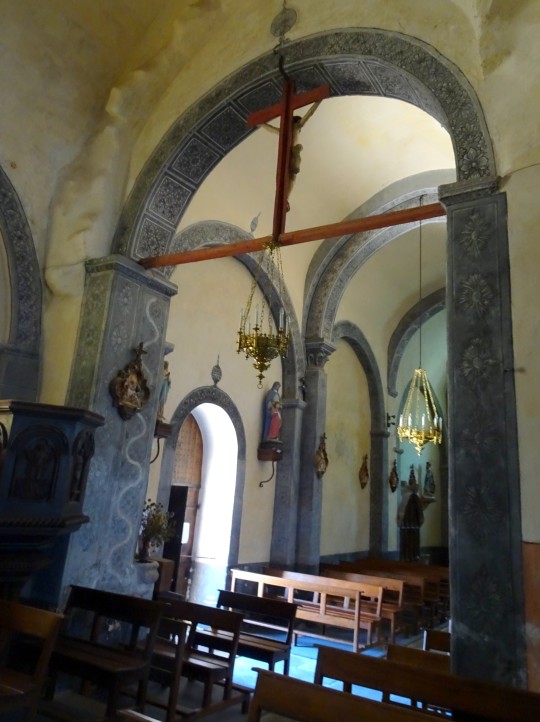

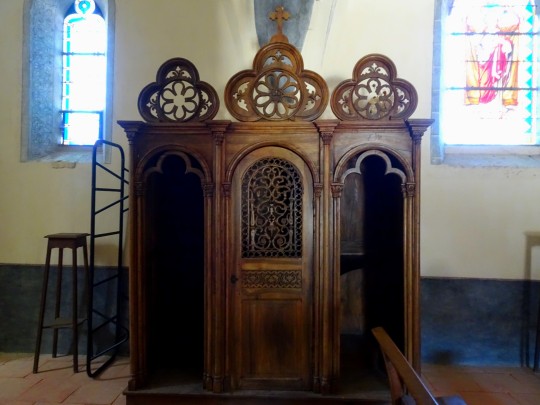

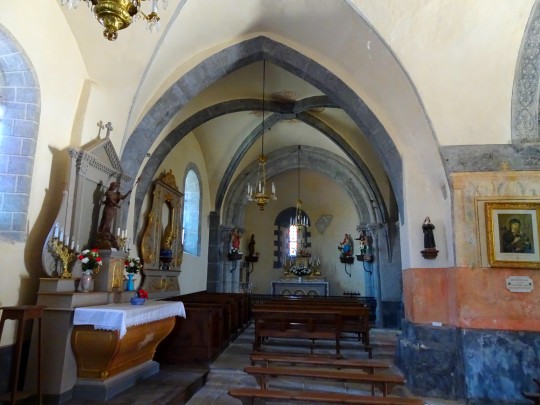
J’ai passé 4 jours en Auvergne, à la limite entre Haute-Loire et Puy-de-Dôme, histoire de replonger un peu dans certaines de mes racines,
L’église romane Saint-Jean-Baptiste d’Azérat.
7 notes
·
View notes
Photo

Loli Bahia
Yves Saint Laurent - Paris Fashion Week SS22 by Jean Baptiste Soulliat
Book┃IG
#Fashion#Fashion week paris#Jean Baptiste Soulliat#Loli Bahia#Model#Paris#Paris Fashion Week#SS22#Streetstyle#Yves Saint Laurent#mode#pfw#portrait
32 notes
·
View notes
Text
BENNETT - Vois sur ton chemin (Techno Mix)
#bennett#vois sur ton chemin#remix#techno#Bruno Coulais#Christophe Barratier#Jean-Baptiste Maunier#Les Petits Chanteurs de Saint-Marc#production music#SoundCloud
3 notes
·
View notes
Text
Just wanted to wish a happy Fête Nationale (the province of Quebec’s national holiday) to all Quebecers and francophones on Tumblr!

And wow, I just realized I’ve hit over 100 followers! Okay, a few of them might be bots, but still, over a hundred people are following my silly little blog. Thank you so much everyone!

13 notes
·
View notes